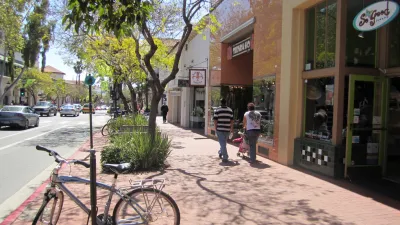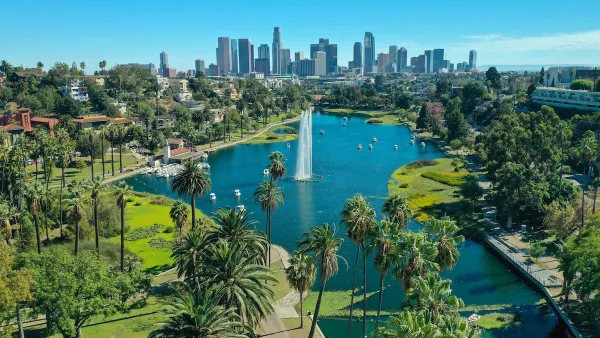The "great global project" of this century, says Patrick Doherty, is how to "accommodate 3 billion additional middle-class aspirants in two short decades." In a bold essay, he outlines how the U.S. must lead the global transition to sustainability.

The United States is in need of a new "grand strategy," says Doherty, director of the Smart Strategy Initiative at the New America Foundation. "The great global project is no longer to stop communism, counter terrorists, or promote a superficial notion of freedom. Rather, the world must accommodate 3 billion additional middle-class aspirants in two short decades -- without provoking resource wars, insurgencies, and the devastation of our planet's ecosystem."
The U.S.'s economic engine, foreign policy, and infrastructure are all out of date, argues Doherty, and to meet the interdependent challenges of the 21st century's strategic landscape - inclusion, depletion, depression, and resilience - the country will need to develop a new strategy: to "lead the global transition to sustainability."
As part of that strategy he envisions a new economic engine for the United States oriented around walkable communities, regenerative agriculture, a revolution in resource productivity, investment in regional growth, and the transition to a reduced carbon emitting energy sector. This strategy will have major implications for the country's foreign policy and governance structures.
"America has never confronted a global challenge of the type or magnitude it faces today," concludes Doherty. "If it does not change course, the United States will be racked by violent storms -- both figurative and literal -- as the global order breaks down. The country cannot delay. For a few short years, it has a window in which it can choose an incredibly prosperous 21st century, but that window will close. It is time once more to lead the world through difficult change."
FULL STORY: A New U.S. Grand Strategy

Analysis: Cybertruck Fatality Rate Far Exceeds That of Ford Pinto
The Tesla Cybertruck was recalled seven times last year.

National Parks Layoffs Will Cause Communities to Lose Billions
Thousands of essential park workers were laid off this week, just before the busy spring break season.

Retro-silient?: America’s First “Eco-burb,” The Woodlands Turns 50
A master-planned community north of Houston offers lessons on green infrastructure and resilient design, but falls short of its founder’s lofty affordability and walkability goals.

Test News Post 1
This is a summary

Analysis: Cybertruck Fatality Rate Far Exceeds That of Ford Pinto
The Tesla Cybertruck was recalled seven times last year.

Test News Headline 46
Test for the image on the front page.
Urban Design for Planners 1: Software Tools
This six-course series explores essential urban design concepts using open source software and equips planners with the tools they need to participate fully in the urban design process.
Planning for Universal Design
Learn the tools for implementing Universal Design in planning regulations.
EMC Planning Group, Inc.
Planetizen
Planetizen
Mpact (formerly Rail~Volution)
Great Falls Development Authority, Inc.
HUDs Office of Policy Development and Research
NYU Wagner Graduate School of Public Service




























